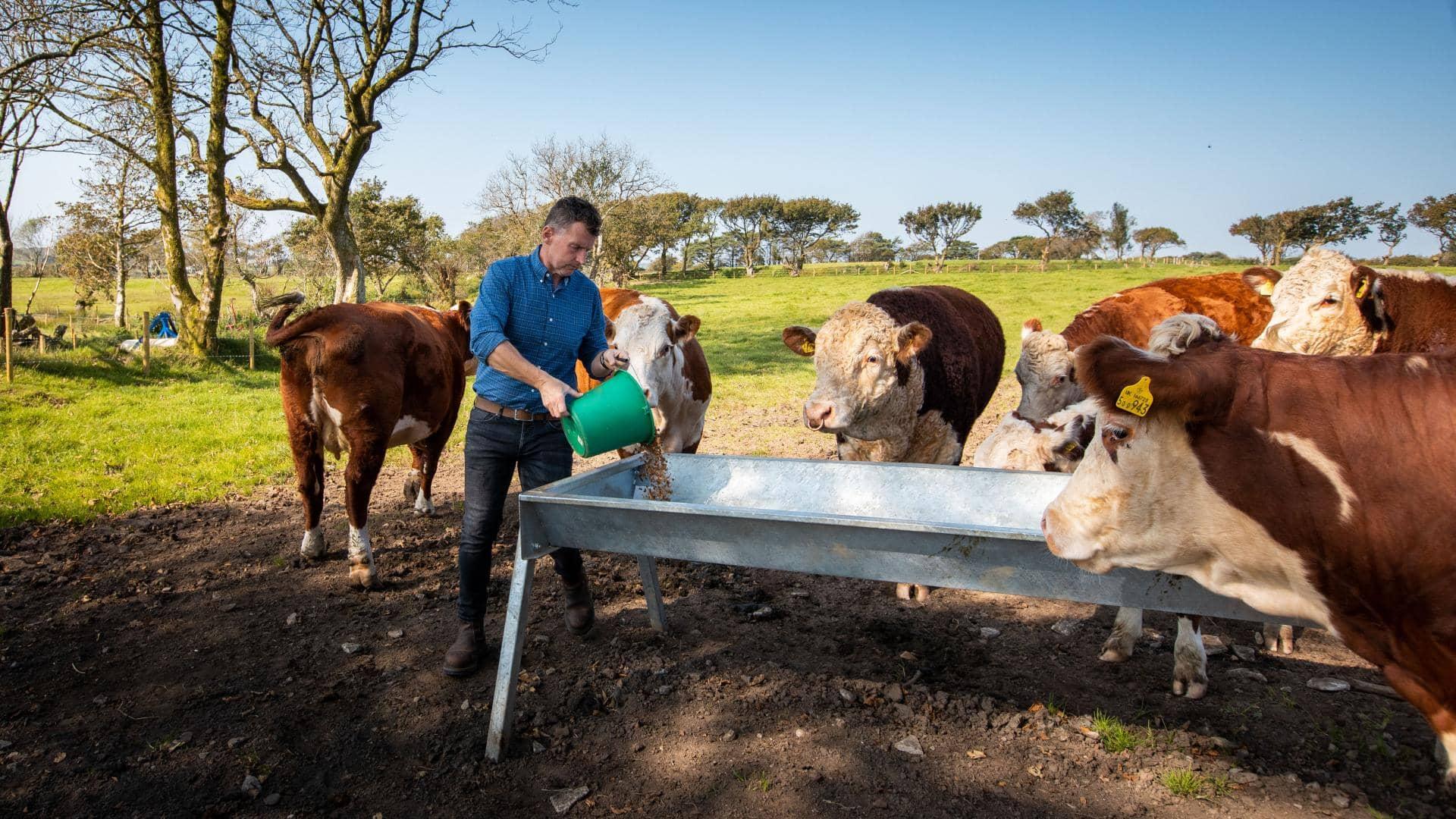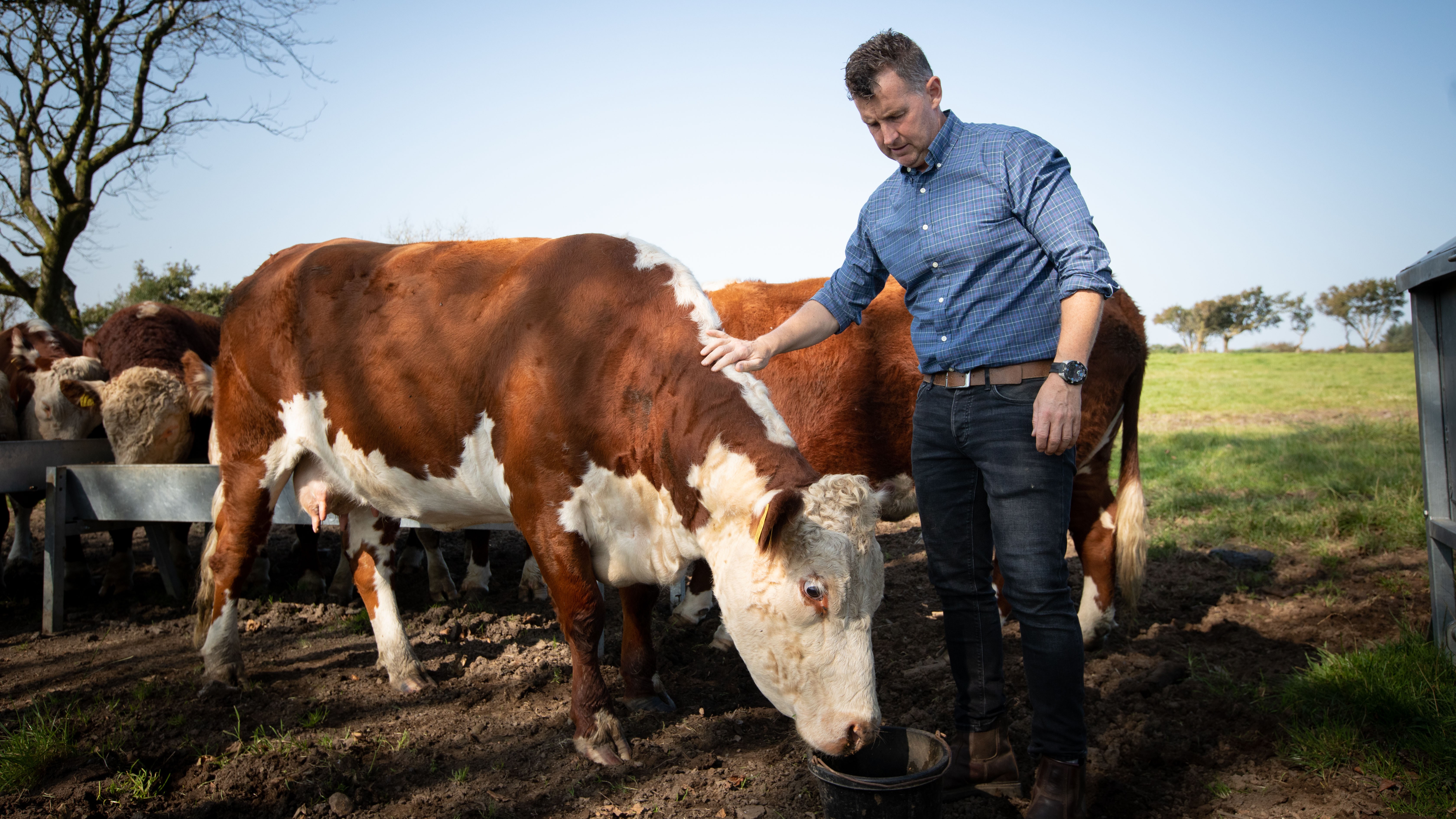
Brits back UK farming with greener shopping habits
- Barclays research reveals that 63 per cent of Brits look to buy more home-grown produce as a result of pandemic and Brexit
- Half of Brits look to purchase seasonal produce, to help the farming sector in becoming carbon neutral
- Barclays teams up with Nigel Owens MBE to highlight the role consumers can play in helping farmers become carbon net zero by 2040
Research released today by Barclays has uncovered the impact of the pandemic on consumer grocery shopping habits, as one quarter of Brits now suggest they buy produce in local shops and farm stores[1], instead of supermarket-only purchasing pre-Covid. Over 7 million[2] Brits had never visited a farm shop prior to the pandemic, but now visit regularly. Further to this, 63 per cent of Brits suggest they will be buying more home-grown produce as a result of the pandemic and Brexit.
These trends are encouraging as the bank launches its Sustainability Through Agri-Tech campaign in partnership with Nigel Owens MBE, world-renowned rugby union referee and cattle farmer based in Pontyberem, Wales. The campaign aims to support the whole agriculture industry in becoming carbon net zero by 2040, an ambition outlined by the National Farmers Unions.
The research uncovers appetite among Brits for sustainably-sourced foods, with 49 per cent looking to purchase seasonal produce, an indication that consumers recognise their role in helping the sector become carbon neutral. Additionally, over half (51 per cent) believe grocery shopping from local stores and farm shops is better for the environment, and 45 per cent think purchasing from these outlets helps them to better understand where their produce has come from. Encouragingly, farms look increasingly likely to help, with two thirds (66 per cent) of farmers planning to sell and process at least some of their produce locally within the next three years.
Brits are keen to understand how they can further reduce their carbon footprint, with 56 per cent wanting to support farmers more so the industry can become carbon neutral. Nearly half of those surveyed (49 per cent) suggest they would like to see a dedicated aisle in shops for sustainably-sourced foods, and 61 per cent think that shops need to provide better information on how shoppers can improve their carbon footprint. This would be hugely helpful for the industry’s ambitions, as 45 per cent of respondents didn’t know if it was possible to buy carbon neutral foods.
Nigel Owens MBE, rugby union referee and farmer in Pontyberem, Wales, said: “Looking at ways the economy can recover post-pandemic, we all have to realise our individual and collective roles in helping the nation become more aligned with its sustainability goals. We must move forwards together, like a collective scrum pushing towards the touch line, to achieve the carbon net zero targets the farming industry has set for itself.
“We can do this by learning about our food, where we should buy it from and understand how farms in the UK are making progress to become carbon neutral. It’s great that consumers have started shopping locally, which means that they are more aware of the environmental impact of the food they put on their tables. To club together means that we can become carbon net zero – from farm to fork – when the food is on our plate.”

Mark Suthern, National Head of Agriculture at Barclays Business Bank, said: “Consumer awareness of their own environmental impact has increased exponentially over the last few years, and it’s great to see that Brits are supporting farmers in becoming carbon net zero with new shopping commitments.
“UK farming businesses are already making huge strides in meeting the 2040 target set by the National Farmers Unions to become carbon neutral, but it’s important that we, as consumers, recognise the importance of supporting the sector to meet that target.”
Industry progress
Barclays also surveyed 1,000 UK farmers as part of its Sustainability Through Agri-Tech campaign, and found that eight in ten (83 per cent) believe they could be carbon neutral by 2035, five years ahead of the NFU’s target. One in six (16 per cent) believe that they have already reached this goal, while 65 per cent agree the pandemic has been the catalyst for them to think about how they can make their business more sustainable.
More information on how farmers apply to the £250m available can be found at: www.barclays.co.uk/agriculture-sustainability
Notes to Editors
Farmer Research Conducted by Opinion Matters 26.08.20 -03.09.20. Sample: 1000 Farmers based in England, Wales, Scotland, & Northern Ireland
Consumer Research Conducted by Opinion Matters 14.09.20 – 17.09.20. Sample: 2000 Nationally representative 18+ Adults in the UK
1 Throughout, quoted results reflect the results for ‘strongly agree’ and ‘agree’ to statements combined.
2 Opinion Matters used ONS population figures to calculate the 7,189,923 figure. Barclays found that almost one in seven consumer respondents agree they had never visited a farm shop prior to the Covid-19 pandemic, but now visit regularly. Calculation: 0.1365 x 52,673,433 (ONS 2019 18+ figures) = 7,189,924.